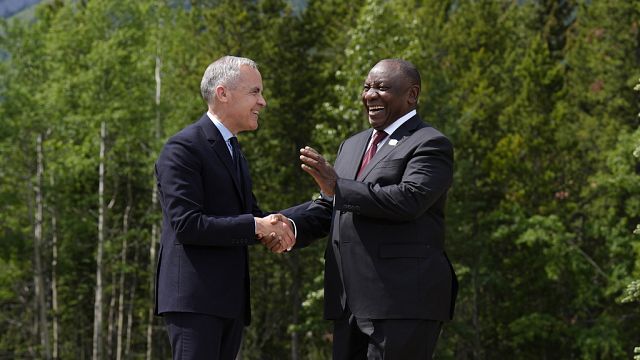Israel Further Alienates Would-Be Arab Allies in Attacking Iran


Wealthy Gulf countries are alarmed and anxious about Israel and Iran’s new war. It wasn’t long ago that supporters of burgeoning ties between Israel and Arab countries were promoting Dubai as the epicenter of regional harmony. Israeli influencers were moving to the dazzling Emirati city, which is just a ferry ride away from Iran. Investors were flitting between Dubai and Tel Aviv. Since the war began last week with Israeli attacks on Iranian nuclear sites, the Emirates has waived all visa overstay fees for Iranians stranded in the country. On Tuesday, the Emirati ruler, Sheikh Mohammed bin Zayed, called the Iranian president to express “solidarity with Iran and its people during these challenging times.” That reflects a sharp turn of events over the last five years, as Gulf governments that were once warming to Israel — seen as a potential ally in their battle to contain Iran — have decided that courting Iran with diplomacy is more pragmatic. And as the war in Gaza continues with no end in sight, spreading anger and despair and fanning the flames of unresolved conflicts across the region, some Gulf officials have come to view Israel as a major destabilizing force in the Middle East. Residents of Dubai, the largest city in the United Arab Emirates, are now watching in dread as a regional war arrives at their doorstep, with missiles flying between Israel and Iran. As President Trump mulls entering the fray on the side of Israel, the fear of Iranian retaliation on American military assets in their country looms in the background. Yet despite the Emirati government’s deep distrust of Iran, to many in the country there is only one party to blame for the escalating violence: Israel, which launched a devastating attack on Iran last week, igniting the fiercest conflagration in the history of the Israeli-Iranian conflict. “Now the madman with a gun is Israel, it’s not Iran,” said Mohammed Baharoon, the head of B’huth, a Dubai research center. “I haven’t seen any other state, other than Israel, who doesn’t want the war to stop.” Still, besides trying to calm tensions and dissuade the United States from getting involved, Gulf governments are not likely to intervene in the conflict. And even in the midst of the new war, some Gulf leaders are continuing — in private — to talk about partnership with Israel and a desire to weaken Iran. A bipartisan delegation of U.S. lawmakers who visited Saudi Arabia, Bahrain and the Emirates this week on a previously arranged trip that was focused on normalization with Israel found that the main message they heard from leadership in each capital was about the dangers posed by a nuclear Iran. Representative Don Bacon, Republican of Nebraska, said that while “obviously they would prefer a more peaceful way of getting rid of the nuclear weapons,” all of the Gulf officials they met “made clear that a nuclear-armed Iran is an existential threat to them.” But the lawmakers also heard that Gulf governments’ desires for regional integration and shared economic prosperity were complicated by the spiraling violence. “There was an understanding in many of our meetings, especially with the leadership that we met with, that Iran has for a long time been a destabilizing force in the region,” said Jimmy Panetta, Democrat of California. “However, there was also a sentiment that the last thing they want is for Israel to become the main source of instability in the region.” Saudi Arabia’s response to the war may best illustrate the region’s complex and shifting allegiances. Saudi Arabia has often been described as Iran’s regional rival, and Saudi Crown Prince Mohammed bin Salman once said that Iran’s supreme leader was “worse than Hitler.” But the prince’s ambitions to transform the Middle East into a “new Europe” with Saudi Arabia at its center require calming regional tensions, and he moved to reconcile with Iran in 2023. The kingdom’s government last week issued “a denunciation of the blatant Israeli aggressions against the brotherly Islamic Republic of Iran.” In Dubai, there were concerns that worsening violence could endanger tourism, an essential sector for the city’s bustling economy. In Oman — which has served as a mediator in negotiations between Iran and the United States over limiting the Iranian nuclear program — the attack derailed months of hard work. And all across the fossil-fuel rich Arabian Peninsula, the war threatens to increase the insurance premiums and transportation costs that underlie hundreds of billions of dollars in investment in technology, aviation and defense that Gulf leaders pledged to Mr. Trump during his visit to the region last month. “A lot of states — irrespective of their strong dislike of the regime in Iran — are quite concerned about Israel’s lack of any sort of restraint, or frankly, strategic perspective,” said Timothy E. Kaldas, deputy director of the Tahrir Institute for Middle East Policy. “It becomes a question of what is your end game — do you have one?” The Israeli offensive began amid talks between the United States and Iran over Iran’s nuclear development. And Prime Minister Benjamin Netanyahu of Israel has said that Israel attacked Iran’s nuclear facilities to ward off an existential threat. However, he has also said it is possible that Israel’s actions could topple the Iranian government, asserting that “we are changing the face of the Middle East.” Israel’s strikes have killed at least 225 people in Iran, including top generals and several nuclear scientists. Iran’s retaliatory attacks on Israel have killed at least 24 people, with most missiles deflected by Israel’s defenses. While some in the Gulf are cheering on the bombing of Iran, the events of the past week have reinforced a belief that Israel is a rogue actor operating outside the international system and that Western powers have allowed it to do so. Mr. Baharoon, the head of the Dubai research center, said he worried about a resurgence in violent activity by nonstate actors like Al Qaeda and the Islamic State, because “if states cannot do anything” to restrain Israel, then some “people will take matters into their own hands.” The new war has also deepened a feeling of helplessness for some in the region who believe that only the United States has any power over Israel but that Mr. Trump is either unwilling or unable to check his ally’s actions. “This is Israel’s world, and we’re just watching it right now,” Alan Eyre, a former diplomat who served as a member of the American negotiating team for the 2015 Iran nuclear deal, said during an online briefing on Monday. “Saudi Arabia, the U.A.E., to a lesser part Qatar and Oman do have a lot of sway with the U.S. government, but I don’t see them getting the U.S. to get Israel to slow down.” Barbara A. Leaf, a former U.S. State Department official focused on the Middle East, said that Gulf leaders wanted the current conflict to be “over, period.” “They have put enormous amounts of time and energy into a détente with Tehran,” coaxing Iran’s leadership to “view calm and stability in the Gulf” as being in their interest, she said during the online briefing, which was held by the Middle East Institute, a research institute in Washington. They had counted on Mr. Trump’s buying into that message during his visit to the region in May, when he announced the flurry of investment deals between the United States and Gulf countries, she said. The president’s response so far has contributed to a “sense of a letdown” in the Gulf, said Tarik M. Yousef, the director of the Middle East Council on Global Affairs, a research institution in Qatar. Gulf officials and business executives have “had the luxury in the last two years of being distant from the conflict,” he said. “The crown jewel for them and the icing on the cake on that outlook and on that reading was Trump’s visit: It was festive, it was celebratory, it appeared to be detached from everything else in the region.” The missiles flying back and forth this week will have an inevitable effect on the “business as usual” approach that some of the Gulf countries had been able to maintain since the war in Gaza began, Mr. Yousef said. “There’s a sense of shock that wow, this is actually coming here now,” he said. But so far, Gulf governments are willing to do little beyond diplomacy, analysts said. Saudi Arabia and the Emirates could theoretically apply punishing economic leverage through their sway over energy markets, but they are unlikely to do so, Mr. Kaldas said. “No one is willing to go that far,” he said. Ismaeel Naar contributed reporting from Dubai.
What's Your Reaction?
 Like
0
Like
0
 Dislike
0
Dislike
0
 Love
0
Love
0
 Funny
0
Funny
0
 Angry
0
Angry
0
 Sad
0
Sad
0
 Wow
0
Wow
0







































